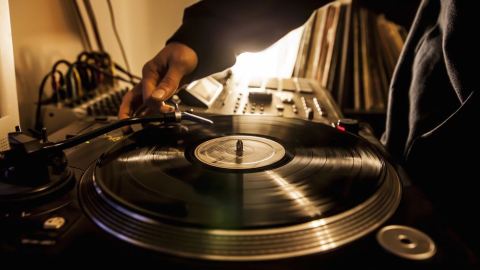What Music Was Truly Revolutionary? Hint: Not Punk.

The arts are subjective, and everyone’s coming-of-age music feels like a personal revolution. But what makes a musical genre truly revolutionary? It must be when new music sounds revolutionary to everyone. Now, a team of British statisticians believe they have pinpointed three moments in modern history when music changed drastically, creating entirely new sounds.
By analyzing music data from Billboard Hot 100, the standard music-industry chart for singles, the scientists were able to track when new genres emerged according to their musical qualities or “topics” such as harmonics and timbre changes, which were either present or absent in a given song.
“Harmonic topics, of which there were eight, captured classes of chord change, or their absence (e.g., ‘dominant seventh-chord changes’ and ‘major chords without changes’). Timbral topics, of which there were also eight, were things like ‘drums, aggressive, percussive’ and ‘female voice, melodic, vocal.'”
Researchers found that boundaries between genres like jazz and blues were highly fluid and, musically speaking, not always very distinguishable. All in all, the report published in Royal Society Open Scienceidentified 13 genre-straddling “styles” that could be followed year by year in order to isolate truly revolutionary moments in music.
The three most clearly revolutionary moments in music during the scientists’ period of study (from about 1960 to present) are classic rock, new wave, and hip-hop. In the early ’60s, the Beatles and the Stones brought rock to a whole new place in America, and the bands they influenced remained popular until the technology-driven sounds of synth pop in 1980s. Then in the 1990s, hip-hop dropped like a bomb, becoming a musical sensation in very short order.
It was during these genre-defining innovations when what we listened to changed the most. So where is punk, you may ask? The genre that so many of its listeners credit as being revolutionary? As Henry Rollins explains, punk rock may primarily derive its notoriety from its social influence, which is enduring and emblematic anywhere there is legitimate resistance to a tyrannical authority.





